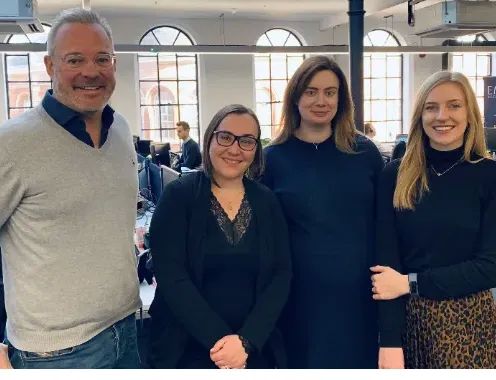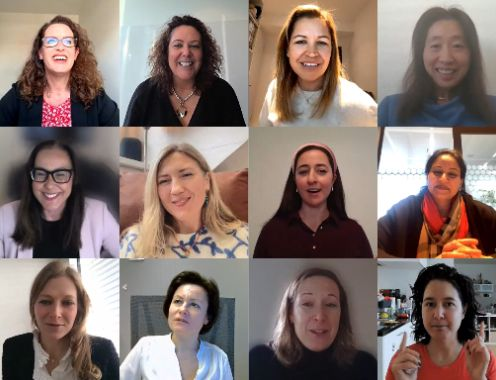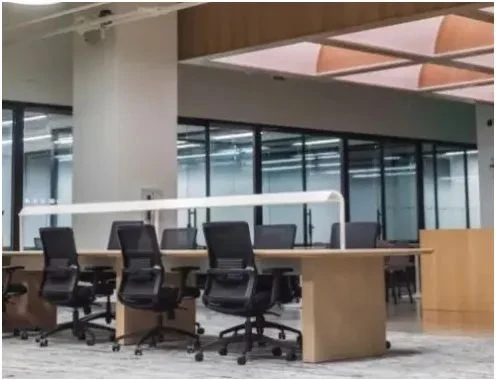International Women's Day 2020: Roundtable Discussion

To mark this Sunday’s International Women’s Day (IWD), our Managing Director, Richard Bailey, carried out a roundtable discussion with Anna Moizio, Emma Feneley, and our Associate Director, Georgia Wright all pictured to the left.
In the this International Women's Day roundtable, Richard asks our team a range of questions revolving around IWD. The team then discuss their thoughts and experiences with regards to attitudes towards women in the workplace and beyond, including what IWD means to them individually and how they would like it to progress in the future.
Rich: The very first National Women’s Day was held in New York City in 1909. The UN were next to recognise International Women's Day in 1975. I’m sure women’s rights and levels of equality have benefited from these initiatives over many years, but what are your views on IWD and how has it helped women globally?
Georgia: It’s a big question. I think IWD is open to interpretation and means different things to different people. For me, it’s fundamentally about respect and appreciation of each other. To have a specific day to help focus everyone’s mind globally is so powerful.
Emma: It’s a great initiative; it’s a platform to celebrate the achievements of women. It’s wonderful that it has become a truly global day.
Georgia: It is brilliant for IWD to gain global acknowledgement beyond western countries, for example, China holding an official holiday on IWD for women.
Emma: I worry that there is still a need for it to exist. It’s quite sad that globally we still need to promote equality for women. The statistics showing the number of female versus male CEOs don’t show equality and, likewise, the proportion of female politicians is very poor across the world.
Anna: I find it sad that it is still newsworthy when a woman achieves a senior position in society or in business. I wish we did not feel the need to have to promote this as news.
Rich: How has IWD helped?
Emma: I personally do not feel blocked in my everyday life from achieving anything, but I am aware this isn’t the case for all women, in the UK or elsewhere. Hence, the work that IWD has and will continue to do to raise awareness is of paramount importance.
Anna: In my early career in Italy, I felt that when I had interviews, my life was being addressed more than it is now. Asking about family plans and marriage was a common occurrence, and I’m happy that it does not happen that often anymore. I’m convinced that IWD contributed to this international change of attitude.
Georgia: I still occasionally have clients question women about their family plans. I hope IWD continues to promote good practice in the workplace.
Rich: #EachforEqual is the 2020 theme for IWD, how do you personally hope it is interpreted?
Anna: IWD is presenting a broader theme beyond the business community, which I think is great. It’s not about being a woman, it’s about everyone, and how everyone is allowed a voice in society. Everyone should be supported, and I hope #EachforEqual will make it possible for voices to be heard and taken seriously.
Georgia: As an expectant parent, it’s great to see more of a change towards both men and women receiving equal rights. Finland now provides both men and women with seven months' maternity and paternity leave respectively, and there is a new European Union directive to promote paternity leave. It’s not always men that are favoured, so #EachforEqual is a great message for both genders.
Emma: I think it’s good to promote equal rights and moves IWD away from being seen as something only traditional feminists can be part of. Men and women should both reflect on what they can positively do. I like #EachforEqual.
Georgia: Very true, that’s how change happens.
Rich: Has your gender mattered in your experience of a multi-national business environment? And have these experiences changed over your lifetime?
Emma: Promotions are completely merit based and transparent here at EMEA. I am lucky. We’ve also got some very strong female role models, like Michelle Ewing, our NL Country Director.
Anna: I also thought of Michelle, in addition to Kelly Toms, our co-founder. Izabela all have senior roles here at EMEA, and our clients have very strong female role models, too that are inspiring.
Rich: Why do you say you are lucky?
Anna: The press and social media highlight so many statistics that make us feel like we are in the minority.
Rich: I know this is a controversial statement, but is this media hype or reality?
Anna: I think it’s reality. Multi-national businesses appear to have taken a very positive approach to encourage women, as well as Diversity & Inclusion policies. Laurence Debroux, Heineken’s CFO and board member, spoke wonderfully about it at an event we co-hosted. Her approach and experiences were very insightful. Unfortunately, I feel SMEs still need to gain greater awareness and need powerful female role models to learn from.
Emma: I have friends who have been negatively impacted in their workplaces because of their gender. It’s not media hype.
Georgia: The companies I have worked for have given me very positive experiences and, as a recruiter in Accountancy and Finance, I am seeing change to support diversity in hiring and striking a gender balance for more senior roles. However, although there is some great work happening, I also see a limited talent pool and pipeline, and I think more needs to be done to address this.
Greater engagement and education for women and supporting diversity in this discipline should be encouraged. Again, I believe the Heineken/EMEA Recruitment Diversity & Inclusion event really showcased great processes that companies can adopt to make change happen. Although, I do wish more men were encouraged to attend!
Rich: I agree; to change everyone’s mindset, we need everyone at the table in these discussions. These events should feature men and women in equal numbers.
Rich: She Matters and EMEA Recruitment have teamed up in 2020. It’s a great initiative, but how do you hope it’s successful?
Georgia: She Matters helps women that have been massively impacted by world events. Supporting them on re-entering the workplace is a wonderful program. It really shows respect and appreciation. I’m proud EMEA Recruitment has invested time and resources into such a good cause.
Anna: I love She Matters’ pragmatic approach. Moving countries is so difficult, having experienced that myself. Finding a job is so hard, using a different language is so difficult and qualifications are different in each country. I’m proud we can use contacts at EMEA to help these women. Christina Moreno is also incredibly inspiring.
Rich: Emma, as our Corporate Social Responsibility Chairperson, you were instrumental in the team that helped EMEA connect with She Matters, how do you hope it’s successful?
Emma: I’m presenting at a Diversity & Inclusion event next week in Geneva at the Caterpillar offices with the Institute of Management Accountants. As part of this presentation, I will talk about unconscious bias and how we all have pre-conceived ideas of people based on their background. I feel the She Matters group looks beyond just women, but also looks at greater inclusion matters. Diversity & Inclusivity awareness is rising and that is brilliant!
Rich: As a male and Managing Director at EMEA Recruitment, what advice do you have for me to ensure everyone is treated equally on a day-to-day basis?
Emma: Don't assume anything! Never assume people want children or a certain career.
Georgia: We don’t want this question to need to exist!
Anna: Continue to develop the business according to new people, new characters that joined and will join EMEA. I’ve been lucky to work with EMEA twice. Very few people have the same hours now, and that’s a great sign of flexibility - this is evident with both genders. Just continue to be supportive.
Rich: Controversially, people are people, teams work better by having fun at work. Sometimes the joking amongst team members mocks one another’s shortcomings - it’s never offensive, but if it ever was, I would wish it to stop immediately. What advice do you have?
Emma: There is a big difference between light-hearted and offensive. This is so difficult, but most importantly, keep investing time and effort to bring strong teams together and make sure people know each other well. Keep a strong and open relationship with each team member, and you will be aware of any issues arising.
Georgia: Being singled out isn’t fair or correct. Light-hearted humour has a place in the office, but it’s important we all understand each other well. Management can encourage this by being transparent within a social environment.
Rich: How do you hope IWD progresses into the future?
Emma: I hope IWD ceases to exist once equality is achieved.
Anna: Yes, I agree!
Georgia: I hope the theme continues beyond just women, but IWD continuing would be a great reminder to all humans of those who have been impacted by prejudice.
That brings to a conclusion our International Women's Day roundtable. If you would like to read more about International Women's Day, please visit the website here.
To read our previous IWD 2020 article from earlier this week, which discusses the important and inspirational work She Matters carries out, and the work EMEA is carrying out to widen the scope of their mission, click here.












You can also use your social account to sign in. First you need to:
Accept Terms & Conditions And Privacy Policy